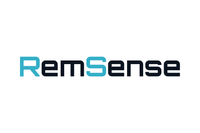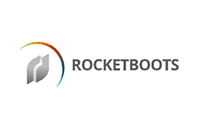AI and Mobile Tech Offer Game-changing Shift in Autism Diagnosis

Innovative AI applications in healthcare are creating new opportunities for investing in game-changing technologies in neurobehavioural diagnostics.
The convergence of artificial intelligence (AI) and mobile technology is ushering in a new era of healthcare diagnostics, particularly in neurodevelopmental conditions such as autism.
This technological synergy is not only transforming patient care through early detection and intervention, but is also creating compelling investment opportunities in the rapidly expanding healthcare AI market.
Investigating this emerging medical technology sector can provide valuable insights for investors who are looking to capitalize on these early-stage innovations.
AI healthcare market landscape
AI and machine learning are fundamentally altering the landscape of healthcare diagnostics. These technologies are enabling more accurate, efficient and accessible screening methods, especially for complex neurodevelopmental conditions.
This game-changing transformation is evidently reflected in current market conditions and projections. Precedence Research estimates the global AI healthcare market size will grow from US$26.69 billion in 2024 to US$613.81 billion by 2034 at a CAGR of 36.83 percent.
This exponential growth is driven by the increasing demand for innovative healthcare solutions, particularly as the prevalence of chronic diseases rises and the need for efficient patient care intensifies. In the neurodevelopmental space, where early diagnosis can significantly impact treatment outcomes, AI-driven solutions are proving to be lucrative.
Paradigm shift in diagnostic solutions
The integration of AI with mobile technology is democratizing access to sophisticated diagnostic tools. Mobile-based solutions offer several key advantages:
- Accessibility: Diagnostic capabilities are no longer confined to clinical settings, allowing for assessments in diverse environments.
- Cost-effectiveness: By leveraging existing smartphone technology, these solutions reduce the need for expensive specialized equipment.
- Early intervention: The ubiquity of smartphones enables earlier and more frequent screenings, crucial for conditions where timely intervention is paramount.
In neurodevelopmental healthcare, early diagnosis and intervention can significantly alter the trajectory of a condition. These mobile-based solutions can be particularly impactful in this area, especially among children. They empower healthcare providers and researchers to conduct assessments and gather data in ways previously not possible.
For conditions such as autism spectrum disorder (ASD) and attention-deficit/hyperactivity disorder (ADHD), AI algorithms can analyze complex patterns of behavior and neurological responses, potentially identifying subtle indicators that might be missed in traditional assessments.
Early and accurate diagnosis facilitated by these technologies can lead to:
- Timely interventions tailored to individual needs.
- Improved long-term outcomes for patients.
- Reduced healthcare costs through early detection and management.
- Enhanced quality of life for individuals and families affected by neurodevelopmental disorders.
Pioneering mobile neurological testing
At the forefront of this technological revolution is Australian health technology firm BlinkLab (ASX:BB1), founded by neuroscientists from Princeton University. BlinkLab’s groundbreaking innovation combines the power of AI and the ubiquity of mobile technology to provide a smartphone-based platform for effective and efficient neurobehavioural testing.
Key features of BlinkLab's solution include:
- AI-driven mobile diagnostics capable of conducting various neurobehavioral assessments, including prepulse inhibition and eyeblink conditioning.
- Remote testing capabilities, reducing dependence on local clinical resources.
- Partnerships with esteemed institutions, like Princeton University and Erasmus Medical Center, enhancing credibility and research capabilities.
- Demonstrated effectiveness in early diagnosis through clinical trials, showing significant sensitivity and specificity in identifying conditions like autism.
BlinkLab's approach not only enhances the accessibility of neurodevelopmental assessments but also provides a platform for ongoing research and development in the field.
AI and mobile tech in autism diagnosis
Through BlinkLab’s AI-based mobile phone app, healthcare providers are able to conduct neurobehavioural evaluation from anywhere. This enables remote and rapid testing to help diagnose neurodegenerative or neurodevelopmental conditions such as autism and ADHD.
There is no single test to date to diagnose autism. The current protocol for diagnosis typically involves a series of evaluations including screening questions, assessments and a behavioural evaluation of a child’s interaction with others.
BlinkLab’s smartphone-based diagnostic app uses minuscule facial reflexes, evoked by the app, to generate a digital biomarker for autism and sends the data to the clinician. The platform also AI modeling and analysis methods to map the brain functions in areas of the brain involved in autism.
Results of a recent large-scale study involving 441 children showed BlinkLab’s Dx 1 testing tool achieved a sensitivity of 91 percent and specificity of 85 percent. These results highlight BlinkLab’s technology’s significant potential as a rapid accurate test in autism diagnostics, a market expected to reach US$5.4 billion by the end of 2036.
This data also bolsters the confidence that BlinkLab Dx 1 will surpass the accuracy parameters required for regulatory approval in the upcoming FDA registration trial, scheduled to commence by the end of 2024.
Global impact and accessibility
The global reach of mobile-based diagnostic tools like BlinkLab's platform cannot be overstated. In regions where access to specialized healthcare is limited, these solutions offer a lifeline.
The widespread adoption of smartphones globally provides an existing infrastructure for deploying these diagnostic tools, potentially reaching millions who might otherwise lack access to early screening and diagnosis.
This democratization of healthcare access is particularly crucial for neurodevelopmental conditions, where early intervention can significantly alter the course of an individual's life. By bringing sophisticated diagnostic capabilities to remote or underserved areas, these technologies have the potential to level the playing field in global healthcare.
Investment landscape
For investors looking to capitalize on the burgeoning AI healthcare market, companies like BlinkLab present a unique opportunity. If growth projections for the AI healthcare market are any indication, early entry into this groundbreaking market could yield significant returns.
With its innovative approach to neurodevelopmental diagnostics, BlinkLab is well-positioned within this high-growth market segment. The company's focus on mobile-based AI diagnostics aligns with broader trends in healthcare technology, including:
- The shift towards personalized medicine.
- Increasing emphasis on preventative care and early intervention.
- Growing demand for remote healthcare solutions.
Key takeaway
The integration of AI and mobile technology in neurodevelopmental diagnostics represents a significant leap forward in healthcare. Companies like BlinkLab are at the vanguard of this revolution, offering solutions that promise to enhance early diagnosis, improve patient outcomes, and potentially reshape the landscape of neurodevelopmental care.
For investors, this rapidly evolving sector presents an opportunity to participate in the growth of a market that not only offers potential financial returns but also contributes to meaningful advancements in global healthcare.
This INNSpired article was written as part of an advertising campaign for a company that is no longer a client of INN. This INNSpired article provides information which was sourced by INN, written according to INN's editorial standards, in order to help investors learn more about the company. The company’s campaign fees paid for INN to create and update this INNSpired article. INN does not provide investment advice and the information on this profile should not be considered a recommendation to buy or sell any security. INN does not endorse or recommend the business, products, services or securities of any company profiled. If your company would benefit from being associated with INN's trusted news and education for investors, please contact us.

